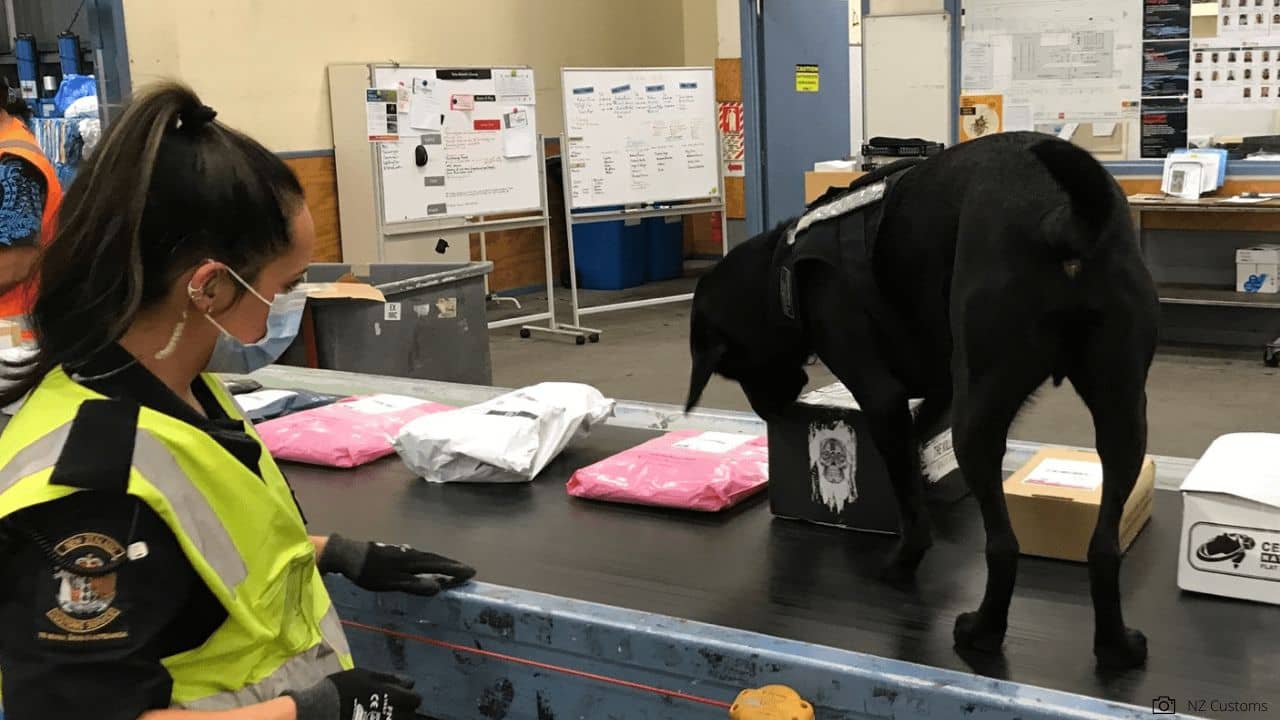
Do You Know GST and Duty Rules for Goods Purchased Online?
5-minute read
Before shopping online, be sure you think it through carefully and that you know all the possible pitfalls.
If you buy items from overseas that cost NZ$1000 or less, you don’t have to pay anything to NZ Customs, as GST is collected when you purchase your items.
However, NZ Customs do charge Duty and GST for alcohol and tobacco products regardless of value.
The rules for importing tobacco have recently changed, and a permit is now required to bring or receive any tobacco into NZ, including gifts.
Please see our recent post for details of the new requirements for tobacco products.
If you are bringing items into NZ for commercial reasons, for example, to sell or for a business, you need to contact a Customs broker who will liaise with NZ Customs on your behalf.
Contact the Easy Freight team now for your NZ Customs clearance services.
If you buy items from overseas for over NZ$1000, NZ Customs collect GST and/or Duty, and you must apply for a Customs Number.
You can do it yourself by following the below steps.
Step 1
Order items for over NZ$1000, arrange transport to NZ and apply for a Customs Number (Client Code).
Step 2
The company that has transported your items will contact you when those items arrive in NZ.
Step 3
Email NZ Customs with the following:
- A completed copy of NZCS 263 Bringing General Items into NZ as a Private Individual (available on NZ Customs website)
- A copy of your photo ID
- Proof of purchase
- Shipping document (Air Waybill/Bill of Lading)
- Notice or letter from your transport company (courier company, NZ Post etc.) that your parcel has arrived in NZ.
Alternatively, you can contact a Customs broker to manage the process for you at your own cost.
Contact the Easy Freight team now to reduce mistakes with NZ Customs and biosecurity rules.
Step 4
Customs will issue you an invoice based on the Customs Value, which is the cost of the item in New Zealand Dollars (NZD), as well as the cost of shipping and any insurance. This charge will be made up of:
- 15% GST
- Duty, if required, this depends on where your item is from and what it is
- An Import Entry Transaction Fee. You can find out the current fee by referring to the Schedule of Goods Clearance Fees.
Step 5
Pay your bill
Step 6
Once you have paid, your transport company will receive an automatic notification that your goods can be delivered to you.

You are responsible for the information on Customs declarations being correct.
Please be aware that some websites may offer to declare an incorrect value for your item on the Customs declaration, so you can avoid paying GST or Duty.
If the sender gives incorrect information or doesn’t make a declaration, your item could be delayed and investigated.
In some cases, NZ Customs may seize your item, and you will have to pay extra charges.
You may also face criminal charges for knowingly making a false declaration.
If you buy an item in any currency that isn’t New Zealand dollars (NZD), it will be converted into NZD to get the Customs Value.
NZ Customs use their own rates of exchange, which are set every two weeks and published 11 days in advance.
NZ Customs use the rate that is current when your item arrives.
NZ Customs have a handy tool What’s My Duty that can help you estimate any Customs charges and taxes.
Some items aren’t allowed to be brought into NZ
There is a full list available of prohibited and restricted imports.
Examples of prohibited items include:
- some dog breeds
- dog-tracking collars
- objectionable material
- equipment for using cannabis or methamphetamine.
Other items need permission before you can bring them in. Examples of items that require a permit to import include:
- tyres
- weapons
- diamonds
- radioactive materials
- plant and animal products, including food and accessories.
Return your item
If you return an item that costs less than NZ$1000, the company you purchased it from is responsible for issuing any refund.
If your item costs more than NZ$1000 and you return an item to the supplier, and they give you a free replacement, you don’t need to pay Duty and GST on the replacement.
You will need to provide proof it’s a replacement, such as emails agreeing to a replacement or evidence that you returned the original item (e.g. shipping documents).
You are eligible for a refund on GST or duties you paid on an item if:
- you didn’t need to pay the Duty
- your item is faulty
- your item was damaged, destroyed, stolen or deteriorated before it was released by Customs
- the item is not what you ordered.
You are not eligible for a refund of GST or Duties you paid on an item if you changed your mind.
Please be aware that NZ Customs do not hold your item when it arrives in New Zealand and are unable to locate the item for you.
That can be done by the company which transported the item on your behalf.
To find out where your parcel is, you need to contact New Zealand Post, the courier, fast freight or shipping company.
They receive, store, track and deliver the parcels.
Overseas mail parcels arrive at the New Zealand Post International Mail Centre in Auckland, where they are screened by Customs and the Ministry for Primary Industries.

New Zealand Post then delivers your parcel unless more information is needed or if you need to pay charges. If this is the case, they’ll send you a letter.
If your parcel is addressed to a person at a private address and you need to pay charges, the letter will say they hold your parcel awaiting Customs clearance and enclose a Customs invoice. When you’ve paid, they’ll deliver your parcel.
If your parcel isn’t addressed to a person at a private address, the letter will say you need to arrange for clearance through a customs broker or freight forwarder or by the New Zealand Post brokerage team.
In some cases, independent freight companies, including YouShop or E Retail, are responsible for receiving and delivering your parcel.
If more information is needed or if you need to pay charges, they’ll contact you by email, telephone or letter.
In some instances, they’ll carry out the Customs clearance on your behalf, usually for a fee.
Watch this helpful video by NZ Customs to find out why parcels are held for clearance at the International Mail Centre and what you can do to make the clearance process easier.
The above information is intended as a guide only. Regulations can change without notice and for specific guidance and information, please visit the NZ Customs website.
Source: New Zealand Customs Service
P.S. Easy Freight Ltd helps New Zealand importers & exporters to save money on international freight and reduce mistakes by guiding how to comply with Customs and biosecurity rules.
➔ Contact us now to learn how we can assist you.
